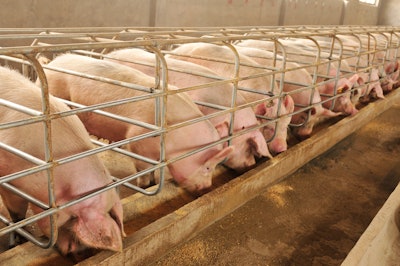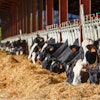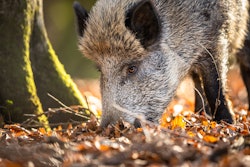
For the first time in more than two years, African swine fever (ASF) virus has been detected in domestic swine in a central province of Bulgaria.
Found to be infected in March was a small herd of 11 animals in Plovdiv, according to the official notification to the World Organisation for Animal Health (WOAH). Contact with wild species is proposed as the most likely source of infection.
In July 2023, two cases of ASF were reported at different locations in the northwest of the country.
Over the past two weeks, the Ukrainian veterinary agency has registered with WOAH ASF cases at four further premises with pigs.
Of these, three were backyard herds — one in each of the adjacent provinces of Kirovohrad, Mykolaiv and Odesa. Within a few days, further cases were confirmed at a commercial farm with 420 swine in Kirovohrad. However, it was more than 100 kilometers from the initial outbreak location in the province.
North Macedonia’s authority has retroactively reported an ASF outbreak affecting a farm in the northeast of the country.
According to the WOAH notification, 68 of the 635 pigs died at the premises in the municipality of Staro Nagoricane in December 2023.
Since the nation’s first ASF outbreaks two years previously, 26 outbreaks of ASF have been recorded in domestic animals, including one large commercial operation.
After a hiatus, ASF has been detected again in swine in two regions of Russia’s Urals federal district.
Based on WOAH reports, affected in late March were two backyard herds. One comprised nine animals in the Khanti-Mansi Autonomous region, and there were 112 pigs at the premises in Chelyabinsk.
Previous ASF outbreak series in both regions were declared “resolved” in mid-2022.
In its long-running battle to control the spread of the disease, Romania has notified WOAH about one further ASF outbreak. Affected in the first week of April was a non-commercial herd of eight animals in a southwestern county.
European ASF outbreak total passes 80
So far this year, a total of 84 ASF outbreaks have been recorded in domestic pigs across eight countries in the region.
This is according to the latest update from the European Commission (EC; as of April 5). The EC’s Animal Disease Information System covers notifiable animal diseases in European Union (EU) member states, and selected adjacent states.
Compared with the previous edition dated March 17, this is an increase of 14 outbreaks, and the previously mentioned outbreak in Bulgaria has raised the number of affected states to eight.
Registering the most outbreaks in this category for the year to date is Serbia — now with a total of 27 — followed by Romania with 25. Both nations registered increases since the previous edition, as did Moldova and Ukraine.
For comparison, the EC recorded a total of 4,513 outbreaks in this population in 16 European states in 2023.
Russia is not covered by the EC’s system.
ASF outbreak total in European wild boar approaches 2,500
Since the EC’s previous update dated March 17, total ASF outbreaks in the wild boar population so far this year have risen by almost 700 to 2,485. Cases have been recorded in 20 European countries monitored by the system.
During the whole of 2023, the outbreak total in wild boar recorded by the EC was 7,903 — also in 20 of the region’s states.
As of April 5, the highest national outbreaks total for the year to date is 559 in Poland, followed by Italy (507), Bulgaria (441), Latvia (232), Lithuania (175), Hungary (162) and Romania (89).
Since the previous edition of the system dated March 17, all these countries reported further cases in wild boar, as did Bosnia-Herzegovina, Croatia, Czech Republic (Czechia), Germany, Greece, Moldova, North Macedonia, Serbia, Slovakia and Ukraine.
In Russia, five further cases were confirmed in wild boar in the Mari-El Republic at the end of March, according to a recent WOAH notification.
Czech Republic’s state veterinary service has reported the country’s fourth ASF case in wild boar in 2024. The infected animal was found dead in Liberec — the same region as the country’s previous cases.
Call for tighter ASF controls in UK
In the United Kingdom (U.K.), the industry body is taking action on two fronts to keep ASF virus out of the country. So far, ASF virus has never been detected in wild or domestic pigs in the U.K.
To help maintain the country’s ASF-free status, the industry body reported this week that more information will be communicated to the public about the infection risk from wild boar.
According to the National Pig Association (NPA), there are pockets of feral wild boar in Great Britain. Numbers are highest in the Forest of Dean in Gloucestershire at around 650, and there are small populations in southeast and southwest England, in southeast Wales, and in northwest Scotland.
Latest monitoring results indicate no sign of ASF infection in wild boar. However, the responsible government agency — the Animal and Plant Health Agency (APHA) — operates a hotline for the reporting of wild boar found dead.
At a recent meeting of stakeholders including the NPA and APHA, there was agreement to increase ASF awareness among those living in and visiting the Forest of Dean and other areas where the wild boar live. Key advice is to avoid contact with these animals because of the risk they pose to domestic pigs.
Also this week, the NPA has been urging its members to contact their Parliamentary representative to call for government action on ASF prevention and border control.
The NPA’s call came after the announcement of proposed heavy cuts in government funding to the Dover Port Health Authority. Among other functions, this agency is responsible for preventing the entry of illegal meat imports through one of the country’s busiest entry points.
NPA sees any lifting of inspections for this trade as raising the risk of the ASF virus entering the country, and the threat to the future of the national pig industry.
View our continuing coverage of the global African swine fever situation.

















